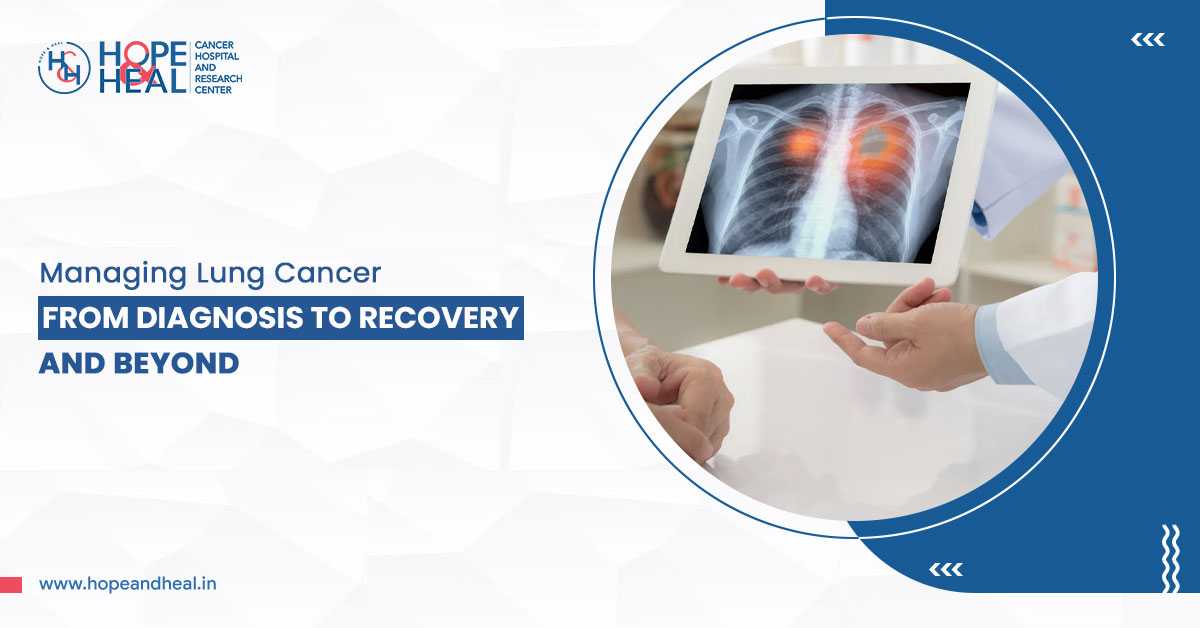Smoking is the main risk factor for lung cancer, which is one of the main causes of cancer-related fatalities globally. Smoking is one of the most avoidable causes of cancer, accounting for almost 85% of cases of lung cancer, according to the World Health Organization.
Giving up smoking can improve your general health and drastically reduce your risk of lung cancer. This blog will discuss the link between smoking and lung cancer, how stopping can lower your risk and the long-term health benefits of quitting. Even after quitting smoking, if you experience any abnormal signs such as chest pain, coughing, and chest infections then contact the best lung specialist in Siliguri.
Smoking And Its Link With Cancer
Tobacco contains dangerous chemicals, which is why smoking is the biggest risk factor for lung cancer. These substances, which include carbon monoxide, nicotine, and tar, harm lung cells and cause DNA changes. These mutations may eventually lead to the formation and growth of cancer cells. Because smoking causes cumulative harm, your risk of developing lung cancer increases with the number of years you smoke and the number of cigarettes you consume. The good news is that your chance of developing lung cancer is decreased if you stop smoking at any age.
How Smoking Cessation Reduces the Risk of Lung Cancer
1. Instant Benefits:
Once you stop smoking, your body starts healing itself. Even while these advantages are remarkable, the biggest shift in lung cancer risk starts to occur in the first few months after quitting. Your lungs might perform better when the cilia start to heal. This improves lung capacity and lowers the risk of lung infections.
2. Lowering Your Long-Term Risk:
The long-term decrease in the risk of lung cancer is even more essential than the short-term advantages. The body's capacity to heal itself over time is directly related to this decrease in risk. Your lungs can function more properly and are less likely to produce malignant cells the longer you stay away from smoking.
3. Preventing the Development of Harmful Mutations:
You are exposed to carcinogens with each cigarette you smoke, which necessitates you to visit the best doctors for lung cancer in Siliguri. The DNA of your lung cells gets damaged with each exposure. By quitting smoking, you are removing these toxic chemicals from your body, which stops more mutations and lowers your risk of getting cancer. Quitting smoking helps prevent the accumulation of these mutations, which is essential for lowering your risk of developing lung cancer in the future.
4. Better Immune Function:
Smoking impairs immunity, which makes it more difficult for the body to fight against illnesses and infections. Quitting enables your immune system to become more robust and enhances its capacity to identify and eliminate abnormal cells, including malignant ones.
Benefits of Reducing Smoking Apart from Lung Cancer
Giving up smoking has a significant influence on your general health in addition to reducing your chance of lung cancer. Some such benefits are:
- Lower Risk of Other malignancies: Smoking is associated with a lower risk of lung cancer as well as malignancies of the mouth, throat, pancreas, bladder, and kidney. Additionally, quitting smoking reduces your risk of getting certain malignancies.
- Improved Heart Health: One of the main risk factors for cardiovascular conditions including heart disease and stroke is smoking. The risk of heart attacks, strokes, and other cardiovascular problems is decreased with smoking cessation.
- Better Lung Function: Quitting smoking results in better lung function, which reduces wheezing, coughing, and dyspnea.
- Improved Quality of Life: People who stop smoking have a better quality of life. You'll be more energetic, more physically fit, have greater taste and smell perception, and experience fewer respiratory issues.
Challenges You Can Expect While Quitting Smoking
Although there are many health advantages to quitting smoking, it's not always simple. This is because nicotine is so addictive, that many people suffer from withdrawal symptoms like anxiety, irritability, trouble focusing, and intense cravings. Various tools are available to assist you with quitting, including:
- Nicotine Replacement Therapy (NRT):By supplying a small amount of nicotine without the dangerous chemicals present in cigarettes, products such as nicotine gum, patches, or lozenges can help reduce withdrawal symptoms.
- Prescription Drugs: By lowering cravings and withdrawal symptoms, several drugs can help people stop smoking.
- Counseling and Support Groups: Behavioral therapy and counseling can offer you techniques to control cravings and triggers as well as emotional support.
Although smoking is the primary cause of lung cancer, you can lower your risk of getting this fatal illness by quitting smoking. The lung cancer specialist in Siliguri always recommends avoiding smoking to keep your lungs healthy. Your chances of reducing your risk are better the sooner you stop. Giving up smoking improves your heart health, lung function, and general quality of life in addition to lowering your chance of lung cancer.
Herein, smoking cessation could be difficult but there is no denying the long-term health advantages. Don't wait. Take the first step toward bettering your health today while lowering your chance of lung cancer. A healthier future is one step closer with each day spent quitting smoking.






